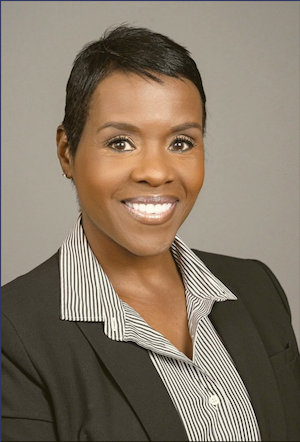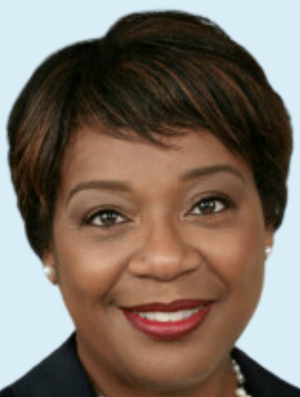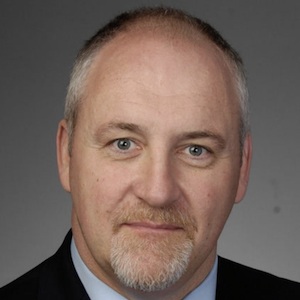Cuyahoga Politics Today: Big changes taking place
Greater Cleveland politics has undergone a sea change in the last few months. We have a new Congressperson, U.S. Rep. Shontel Brown. The record-setting Cleveland mayoral tenure of Frank Jackson is grinding to an end after sixteen years, giving way to the energetic promise of his successor, the soon-to-be-tested Justin Bibb. Kevin Kelley left his post as city council president to run for mayor. Defeated soundly by Bibb, Kelley exits stage right after sixteen years on council, including eight as leader. He takes with him Slavic Village councilman Anthony Brancatelli, a twelve-year City Hall fixture, another insider turned out.
Of course Ken Johnson, is gone, decades late, revealed as a triple dipper when only double dipping is allowed. And county executive Armond Budish acknowledged this month what most county residents had already concluded: he's officially a lame duck.
Term-limited State Senator Sandra Williams and Hough-area councilman Basheer Jones are soon to be out of office, if only temporarily in Williams' case, as she is rumored to be looking at her old job, state rep, in the newly drawn and court-challenged super-gerrymandered state legislative districts.
Add to all this the successful rise of Blaine Griffin as the new Council president-in-waiting, signaling the burial of an outdated custom that mandated the council president and mayor be not of different parties, but of different races, and that a record proportion of women —five out of 17 — will be members of the new City Council, and betcha by golly wow, that's a lot to process.
But wait, there's more! 2022 promises no respite in terms of political change. As the Ohio Supreme Court reviews new state legislative and congressional districts drawn in disregard if not outright defiance of Ohio voters' wishes in 2015 and 2018, filing deadlines for Congress have already shifted and some or all districts may yet have to be redrawn. Not only are Ohio's 15 Congressional seats on the ballot, so are all statewide executive offices, from governor on down, as well as the US Senate seat occupied by Rob Portman for the past eleven years. From the looks of things so far, the GOP primary will be a barn burner, with the winner possibly interested in book-burning as well.
The Democrats may have one interesting primary battle as well, with early entrants John Cranley of Cincinnati and Nan Whaley of Dayton squaring off for their party's Democratic nod. And next year will be the first big test for new state party chair Liz Walters, who seems to be making a lot of smart and long-overdue moves to restore the party to competitive status. Her efforts will be abetted by an intriguing new group comprised of veteran political consultants who have organized the Bring Ohio Back political action committee in hopes of doing to DeWine and his fellow travelers what the Lincoln project did to Trump last year.
Readers will get tired of reading it before we get tired of writing it: there are no off-years in politics.
This Sunday, we will be posting about the outlook for the incoming Bibb administration. But even what we've written above does not cover all the significant changes in the local political landscape. We shall note some of them here.

Kahlil Seren
Let's start with Cleveland Heights, which for the first time in a century chose a mayor by direct election. Mayor-elect Kahlil Seren will be setting precedents as mayor pretty much on a weekly, if not daily basis.
He comes to the task well-equipped and with a surprising mandate. Like Bibb, Seren is literally a student of government. He obtained his master's degree in law and public policy from the Levin College of Urban Affairs at Cleveland State while also serving on Cleveland Heights city council and holding down a full time job as a research and policy analyst on for the Cuyahoga County Council. His campaign website had a section called "Books I'm Reading" and talked about "his upbringing as the child of an interracial lesbian couple focused on "intersectional equity and justice".
Also of note in Cleveland Heights, reelected councilwoman Davida Russell has tossed her hat in the ring to be council president.

Kim Thomas
In Richmond Heights, Kim Thomas has shown herself to be a rising star. A political novice only a few years ago, Thomas aligned herself with then-county councilwoman Shontel Brown, becoming in rapid succession a precinct committeewoman, a county party vice-president, city councilwoman, and earlier, this month, mayor-elect.
Thomas will be the city’s second black and second female mayor. The city’s first black woman mayor, Miesha Headen, was unfairly maligned and served less than ten months before she was recalled.
Thomas has no assurance of an easier path in a city where the old guard refuses to exhibit any semblance of grace. Right now, a lame-duck city council is fast-tracking a second 15-year tax abatement for the redevelopment of Richmond Town Square. Critics say the issue has not been fairly presented to the public and will handicap the continued renaissance of the city’s school district. The district’s enrollment is disproportionately black compared to the city’s population as a whole, with most white students using state education dollars to attend private or parochial schools.
Garfield Heights is another first-ring suburb wrestling with the challenges of changing demographics and the attendant cultural adjustments that are required. Long-time mayor Vic Collova retired a year early rather than deal with the city’s racial turmoil. Former councilwoman Shayla Davis’s attempt to defeat his successor was a long shot that went nowhere. But she’s likely to persevere.
Finally, Maple Heights, Garfield’s neighbor to the east, endured some minor drama this month with the attempted recall of Richard Trojanski, an earnest and hard-working public official who just happens to be an openly gay white man in a largely black city. A small faction has tried three times to overthrow him in just the past two years.

Annette Blackwell
Meanwhile, Annette Blackwell, the city’s mayor, is being recruited to join next year’s race for county executive. When we asked her last week if she were planning to run, her reply was “No comment, at this time.”
We’ll translate that for you: “I’m not ready to say yes, but as soon as I secure some more commitments, I’ll jump in with both feet.
• • •

Dave Wondolowski
We close by announcing the biggest loser of the just concluded electoral season, someone who wasn't even on the ballot. It’s Dave Wondolowski, hands down. When the executive director of Cleveland Building & Construction Trades boasted during the last days of the campaign that the Kelley team would “kick the sh_ _ out of” of both Justin Bibb and the media after Kelley won the mayor's race, it was the complete unveiling of his inner Jon Gruden.
You remember Gruden, the former coach of the NFL’s Las Vegas Raiders who said that he was anything but a racist after a racist, homophobic, and misogynistic email he wrote became public. Gruden said the email was a one-off, aberrational kind of thing from a decade ago. When a whole cache of such emails was released, his early denials were confirmed as the hollow, self-serving declarations they so transparently were.
Wondolowski funneled tens of thousands of dollars of labor union dues to a dark money political action campaign to discredit Dennis Kucinich before the mayoral primary, when Kucinich was thought to be Kelley’s principal primary rival. When the Kelley team discovered belatedly that Bibb was eating into Kelley’s base, Wondolowski forced the diversion of fifteen thousand dollars from the anti-Kucinich PAC to pay for a racist hit piece on Bibb. It was amateurish and ineffective, and Wondolowski feigned ignorance when asked about it, saying he considered the PAC's mission to be one of public service. Meanwhile, even as he trotted out how much he has done for black people, Wondolowski was bragging indiscriminately about his role in the hit piece to people he apparently thought had no black friends.
A DNA test is unnecessary to establish his kinship to Gruden.
Wondolowski is currently a sitting member of the county board of elections and vice chair of the port authority. While his election board seat runs until 2023, his term on the port board expires this coming April. The appointing authority for his replacement will be new Cleveland mayor Justin Bibb.
We’d be astonished if the Bibb transition team isn’t compiling a list of replacement candidates.
• • •• • •


















